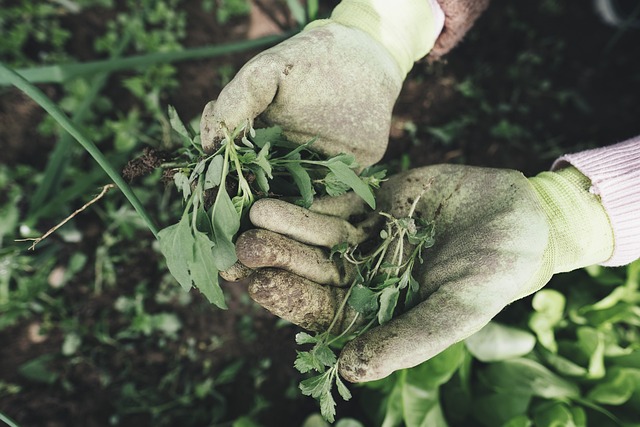I have recently been involved in weeding a garden for someone, and it set me thinking about how so many gardeners hate weeding.
It is a job that seems to be endless, because the more weeds you pull up, the more that seem to appear. And the closer you get to the job, the more you see little weeds that the casual observer would never even notice.
It's something like counseling sessions with other Christians, where you deal with problems that have come up in their lives. Most people hate these times when you may have to point out faults and feel around for ways to motivate the person to overcome them.
Yet, when it's all said and done, the results can be quite pleasing. A neat garden, or a spiritual life that is far more on track and efficient for God.
I thought about writing an article on this simple thought, and it seemed appropriate to have something from Jesus to support it. Obviously, you have his instructions about dealing with faults between Christians (i.e. the "grievance system" of Matthew 18). Certainly there is a need for all of us to be critical of ourselves as well as others, in order to pick up little sins before they develop into bigger ones.
Yet, on the subject of weeds in particular, I could not help but think of the parable about the man whose enemy sowed weeds in his wheat field. In that one, the instructions were to NOT pull the weeds out, because doing so could harm the wheat. He said to let the two grow together "until the harvest", when they would be ultimately separated, and the weeds would be burned.
Definitely sounded like lazy gardening to me, although the context seems to be one where no serious harm is done to the good plants by being surrounded by the bad ones. It seems to be a lesson about patience, about tolerance, about overlooking the weeds.
Then I thought back to my weeding and I could see how it can easily become an obsession... one which can grow out of proportion to the amount of good that can be accomplished through so much effort. Sometimes we need to just take the attitude that "Weeds happen". They are a fact of life, a reality of the world we live in, including our own lives. Like germs, much as we may hate them, we are never going to escape them all.
Think of the story about the woman caught in adultery. Was Jesus really trying to justify her? I don't think so. I think he knew that what she had done was wrong. But he was trying to get the Pharisees to fit it into perspective with their own behaviour. He said of their plans to stone her, "Let him that is without sin cast the first stone."
Jesus was, in that instance, dealing with the self-righteousness that can so easily grow from an obsession with the weeds in the lives of others while ignoring the weeds in ourselves. Perhaps with the story of the wheat and the weeds, one could even apply it to the flaws in our own lives. We can become obsessed with perfection (usually in just one area) to the exclusion of greater needs in other areas, and the result would be far from the bigger picture of spiritual maturity that God is looking for.
So the warning is there for each of us to guard against an inquisition mentality, which keeps digging and digging to uncover more and more faults (whether in others or in ourselves) until all the positives of love have been destroyed by it. By all means, let us caution one another when we see error creeping in; but let us keep it in perspective, always mindful of our own imperfections and of God's grace to forgive both us and them.

